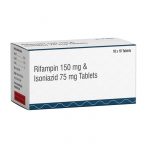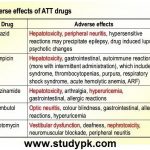
5 Signs of PTSD: A Concise Explanation
PTSD is characterized by five distinct signs: exposure, intrusion symptoms, avoidance, altered mood, and altered reactivity.
The symptoms of post-traumatic stress disorder (PTSD) can significantly impact one’s daily life. They typically emerge within the first month following a traumatic event, although in some cases, they may not manifest for months or even years.
PTSD can vary in intensity, with some individuals experiencing periods of mild symptoms that alternate with periods of increased severity, while others may consistently suffer from severe symptoms.
To receive a diagnosis of PTSD, an individual must exhibit the following five types of symptoms:
- Exposure: This refers to being directly exposed to or learning about actual or threatened death, severe injury, or sexual violence. This exposure can occur through witnessing the traumatic event firsthand, experiencing it indirectly through others, or repeatedly encountering distressing details related to the event in one’s work.
- Intrusion symptoms: Intrusion symptoms include distressing memories, dreams, flashbacks, and intense psychological distress triggered by internal or external cues that resemble the traumatic event.
- Avoidance: Avoidance involves persistent efforts to avoid distressing memories, thoughts, or feelings related to the traumatic event, as well as avoiding external reminders that trigger negative emotions associated with the event.
- Altered mood: Negative changes in cognition and mood, such as distorted beliefs, persistent negative emotions, reduced interest in activities, and feelings of detachment, are considered altered mood symptoms of PTSD.
- Altered reactivity: Changes in arousal and reactivity, including irritability, impulsive behavior, hypervigilance, exaggerated startle reaction, concentration problems, and sleep disturbances, are indicative of altered reactivity in individuals with PTSD.
4 Phases of PTSD: Understanding the Process
PTSD is a psychological response that occurs in individuals who have experienced or witnessed a traumatic event that threatened their life or someone else’s.
Despite its significant impact on individuals’ daily lives, PTSD is rarely discussed openly and honestly.
The journey through PTSD can be divided into four distinct phases:
- Impact: This phase occurs immediately after experiencing or witnessing the traumatic event. Its duration varies depending on the event’s severity, ranging from a few hours to several days. Symptoms experienced during this phase include shock, fear, helplessness, guilt, anxiety, and hypervigilance.
- Rescue: In the rescue phase, individuals begin to acknowledge and come to terms with the traumatic event. They may still be dealing with shock and distress, experiencing emotions such as denial, confusion, anxiety, flashbacks, nightmares, despair, hopelessness, sadness, anger, and numbness.
- Intermediate recovery: This phase involves adjusting to everyday life and dealing with both new challenges and the support, or lack thereof, received from others. It can be further divided into two sub-stages: altruism, where individuals are inspired to help others due to the outpouring of support they have received, and disillusionment, where individuals become disillusioned when support wanes and they face the mess of recovery alone.
- Long-term reconstruction: This phase focuses on rebuilding one’s life and addressing personal issues stemming from the traumatic event. Fear, resentment, and depression may arise during this phase as individuals contemplate their future.
Talking about the traumatic event and seeking professional help are crucial for long-term recovery from PTSD.
- Untreated PTSD can lead to long-lasting symptoms that persist for years.
- Failure to process the emotions and memories associated with the event can result in severe mental health consequences.
Seeking the guidance of a mental health professional for memory processing is vital for long-term recovery.
Seeking the expertise of a mental health professional for memory processing is essential for long-term recovery.


